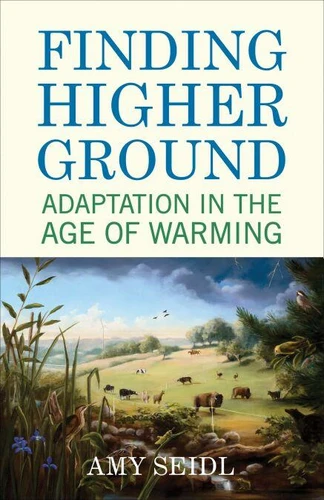Finding Higher Ground. Adaptation in the Age of Warming
Par :Formats :
Disponible dans votre compte client Decitre ou Furet du Nord dès validation de votre commande. Le format ePub protégé est :
- Compatible avec une lecture sur My Vivlio (smartphone, tablette, ordinateur)
- Compatible avec une lecture sur liseuses Vivlio
- Pour les liseuses autres que Vivlio, vous devez utiliser le logiciel Adobe Digital Edition. Non compatible avec la lecture sur les liseuses Kindle, Remarkable et Sony
- Non compatible avec un achat hors France métropolitaine
 , qui est-ce ?
, qui est-ce ?Notre partenaire de plateforme de lecture numérique où vous retrouverez l'ensemble de vos ebooks gratuitement
Pour en savoir plus sur nos ebooks, consultez notre aide en ligne ici
- Nombre de pages208
- FormatePub
- ISBN978-0-8070-8599-8
- EAN9780807085998
- Date de parution07/06/2011
- Protection num.Adobe DRM
- Taille206 Ko
- Infos supplémentairesepub
- ÉditeurBeacon Press
Résumé
While much of the global warming conversation rightly focuses on reducing our carbon footprint, the reality is that even if we were to immediately cease emissions, we would still face climate change into the next millennium. In Finding Higher Ground, Amy Seidl takes the uniquely positive-yet realistic-position that humans and animals can adapt and persist despite these changes. Drawing on an emerging body of scientific research, Seidl brings us stories of adaptation from the natural world and from human communities.
She offers examples of how plants, insects, birds, and mammals are already adapting both behaviorally and genetically. While some species will be unable to adapt to new conditions quickly enough to survive, Seidl argues that those that do can show us how to increase our own capacity for resilience if we work to change our collective behavior. In looking at climate change as an opportunity to establish new cultural norms, Seidl inspires readers to move beyond loss and offers a refreshing call to evolve.
She offers examples of how plants, insects, birds, and mammals are already adapting both behaviorally and genetically. While some species will be unable to adapt to new conditions quickly enough to survive, Seidl argues that those that do can show us how to increase our own capacity for resilience if we work to change our collective behavior. In looking at climate change as an opportunity to establish new cultural norms, Seidl inspires readers to move beyond loss and offers a refreshing call to evolve.
While much of the global warming conversation rightly focuses on reducing our carbon footprint, the reality is that even if we were to immediately cease emissions, we would still face climate change into the next millennium. In Finding Higher Ground, Amy Seidl takes the uniquely positive-yet realistic-position that humans and animals can adapt and persist despite these changes. Drawing on an emerging body of scientific research, Seidl brings us stories of adaptation from the natural world and from human communities.
She offers examples of how plants, insects, birds, and mammals are already adapting both behaviorally and genetically. While some species will be unable to adapt to new conditions quickly enough to survive, Seidl argues that those that do can show us how to increase our own capacity for resilience if we work to change our collective behavior. In looking at climate change as an opportunity to establish new cultural norms, Seidl inspires readers to move beyond loss and offers a refreshing call to evolve.
She offers examples of how plants, insects, birds, and mammals are already adapting both behaviorally and genetically. While some species will be unable to adapt to new conditions quickly enough to survive, Seidl argues that those that do can show us how to increase our own capacity for resilience if we work to change our collective behavior. In looking at climate change as an opportunity to establish new cultural norms, Seidl inspires readers to move beyond loss and offers a refreshing call to evolve.



